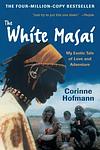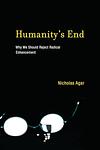The Greatest New Zealand, Swiss "Nonfiction" Books Since 1980
Click to learn how this list is calculated.
This list represents a comprehensive and trusted collection of the greatest books. Developed through a specialized algorithm, it brings together 300 'best of' book lists to form a definitive guide to the world's most acclaimed books. For those interested in how these books are chosen, additional details can be found on the rankings page.
Genres
Countries
Date Range
Reading Statistics
Click the button below to see how many of these books you've read!
Download
If you're interested in downloading this list as a CSV file for use in a spreadsheet application, you can easily do so by clicking the button below. Please note that to ensure a manageable file size and faster download, the CSV will include details for only the first 500 books.
Download-
1. Grid Systems In Graphic Design by Josef Müller-Brockmann
This book is a seminal guide to graphic design and typographic composition, focusing on the use of grid systems as a foundational tool for ensuring visual coherence and hierarchy across various design projects. It provides designers with a methodical approach to organizing text and images in a clean, logical, and aesthetically pleasing manner. Through systematic arrangement, the grid serves as an essential framework that can be applied to a wide range of design work, from print media to digital interfaces. The book delves into the principles, applications, and benefits of grid systems, offering practical advice, examples, and clear illustrations to help designers harness the power of grids to create effective, impactful visual communications.
-
2. Common Sense, Science, And Scepticism by Alan Musgrave
This book critically examines the foundations of knowledge, blending philosophy with practical reasoning to navigate the concepts of common sense and scientific skepticism. It challenges readers to question how we distinguish between what is considered 'common sense' and what is scientifically proven, delving into the philosophical underpinnings of skepticism itself. Through a rigorous analysis, the text explores the limits and strengths of human understanding, encouraging a thoughtful reconsideration of how we accept or reject information in the realms of science and everyday life. It serves as both an introduction to philosophical skepticism and a deep dive into the epistemological questions that underlie our quest for knowledge.
-
3. The White Masai by Corinne Hofmann
The book is a true story of a Swiss woman who, while on holiday in Kenya, falls in love with a Samburu warrior. Defying her family, friends, and cultural norms, she decides to leave her life in Switzerland behind to marry him and live in his remote village. The narrative delves into her challenging and transformative journey as she adapts to a vastly different culture, learns the local customs, and navigates the complexities of her interracial marriage and the community's expectations. Her story is one of love, resilience, and the pursuit of happiness in the face of extraordinary cultural differences.
-
4. Humanity's End by Nicholas Agar
This book presents a thought-provoking exploration of the potential future of human evolution, focusing on the implications of advanced biotechnologies and artificial intelligence. The author argues that these technologies might lead to the emergence of posthuman beings—entities vastly more intelligent and possibly immortal compared to current humans. The narrative delves into the ethical, philosophical, and societal impacts of such a transformation, questioning whether this evolution would signify the end of humanity as we know it or the beginning of a new, unimaginable phase of existence. Through a careful examination of the potential benefits and risks, the book challenges readers to consider the value of human qualities and the essence of what it means to be human in a rapidly changing world.
-
5. The Cult Of Emptiness The Western Discovery Of Buddhist Thought And The Invention Of Oriental Philosophy by Urs App
This book delves into the fascinating journey of how Buddhist thought was introduced and interpreted in the West, tracing the origins back to the encounters between European intellectuals and Asian cultures. It explores the notion of "Oriental Philosophy" as a construct of Western imagination, shaped by the translations and interpretations of texts that were often misunderstood or taken out of context. The author critically examines the romanticization and misconceptions that led to the creation of a mystical and exotic Eastern philosophy, highlighting the impact of these interpretations on both Western perceptions of Buddhism and the development of modern philosophy. Through a meticulous historical analysis, the book reveals the complex dynamics of cultural exchange, intellectual curiosity, and the quest for spiritual understanding, shedding light on the enduring fascination with the concept of emptiness and the cultural constructs that have emerged around it.
Reading Statistics
Click the button below to see how many of these books you've read!
Download
If you're interested in downloading this list as a CSV file for use in a spreadsheet application, you can easily do so by clicking the button below. Please note that to ensure a manageable file size and faster download, the CSV will include details for only the first 500 books.
Download



